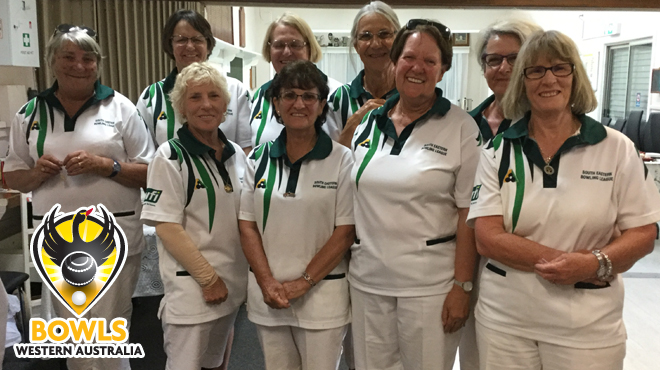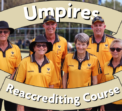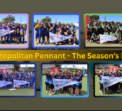Legacy official charity partner
Bowls WA is delighted to announce its partnership with our chosen charity organisation for 2017 – Perth Legacy.
Bowls WA intends to form a new partnership with Perth Legacy, which is an iconic Western Australian not for profit organisation that is dedicated to the welfare of its’ beneficiary families, namely those that have suffered grief or loss as the result of the incapacitation or death of a spouse or parent during or after their Australian Defence Force Service.
Perth Legacy provides essential support to those families of Australian Defence Force Veterans’ who are either deceased or suffering from ill-health.
As an organisation close to the hearts and minds of all Bowls WA members, we welcome the opportunity to host the inaugural “Bowls WA Legacy Week” Round during the week 18th-25th March 2017.
This round was selected to commemorate the 100th Anniversary of the Western Australian based 10th Light Horse Regiment’s involvement at the Battle of Gaza, between Nov 1916 and March 1917 reflecting the culmination of the same period of the current Bowls WA 2016-17 pennant calendar.
Photo: 10th Light Horse Regiment soldiers digging trenches during the Battle of Gaza
During the Rounds between 18-25 Mar 17, we will be asking the members of all 200+ WA Bowls clubs to remember the fallen from the Great War and to join us in commemorating the 100th Anniversary of this famous battle in which many Western Australian Men served with pride.
The intention would be to present Perth Legacy with a generous donation either just prior to Anzac Day in April 2017 or at the Bowls WA awards night on May 26.
As we share the same patron, the Governor of WA Her Excellency the Hon. Kerry Sanderson AC, may be invited to attend this auspicious occasion recognising the generosity of our 15,000 + members.
Please support Legacy during Bowls WA Legacy Week 2017!
———————————————–
Read more about the 10th Light Horse Regiment at the Battle of Gaza
Background
The entry of Turkey in to World War One in October 1914 forced the allies to divert troops to Egypt especially to defend the Suez Canal. Turkish forces did attempt to seize the Canal however were defeated in early 1915 and following the withdrawal from Gallipoli, the Egyptian Expeditionary Force (EEF) composed of British, Indian, Australian and New Zealand troops went on the offensive into the Sinai Peninsula, then Palestine. The Australian elements of the EEF were largely light horse and camel corps mounted units.
Western Australia’s 10th Light Horse Regiment (10th LH) served alongside the 8th (Victorian) and 9th (South Australian) Light Horse Regiments as part of the 3rd Light Horse Brigade – making up the Australian and the Anzac Mounted Divisions.
The first battle of the offensive was at Romani in August 1916 where once again the Turks were defeated. The advance by the EEF was slow however due to logical constraints especially considering the scarcity of water. Water was a vital factor and as it was never readily available, this limited tactical opportunities. In December 1916, 10th LH, was central in gaining a victory over the Turks at Magdhaba. The town of Rafa was captured in January 1917 and the EEF was now in Palestine.
The key to southern Palestine was the town of Gaza (the western part of the Gaza-Beersheba Turkish defensive sector).
The First & Second Battles of Gaza ending on 26 March 1917
10th LH commenced to move quietly towards their objective near Gaza early on the thickly fog shrouded morning of 26 March – the fog not lifting until around 6am and by 10am 10th LH were in their allocated place in reserve behind other units of the 3rd Light Horse Brigade.
The British infantry were to conduct the main attack on the town however this was not successful due to the fog and the Turks putting up a stout resistance. British staff work was poor and the higher headquarters lost touch with forward units.
The Australian commander, Major General Harry Chauvel, a Queenslander, had been placed in temporary command of both mounted divisions and instructed to launch a dismounted attack on Gaza to assist the infantry attack. By 3pm all his units were deployed and 10th LH attacked around 4pm along with the rest of the Imperial Mounted Division. The main hill that was crucial for success in capturing Gaza was Ali Muntar and 10th LH was deployed to the northeast of there and fought at a place known as Anzac Ridge. Throughout the day 10th LH had been strafed by German aircraft in addition to coming under Turkish artillery and small arms fire.
Other Australian and British units had by now fought their way into Gaza where fighting was severe especially amongst the heavy cactus groves which became a serious barrier to the attacking force. The situation was desperate as Gaza had to be taken by nightfall. Despite problems, the British infantry valiantly fought their way onto Ali Muntar and linked with mounted troops just after 6.30pm.
10th LH had also fought successfully in their role to stop any Turkish reinforcements entering Gaza. Ali Muntar was now captured; the Australian and New Zealand units were dealing with Turkish artillery positions and on the verge to successfully entering Gaza.
The battle was virtually won when an astounding order was then received to withdrawer as British high command, not aware of the significant gains made, had received reports that two enemy relief columns were approaching Gaza. The Turks in fact were preparing to evacuate Gaza. Too late, the high command realised the relief force had halted well north of Gaza and that the Turks were on the point of surrender.
With great reluctance and some confusion, the allied troops withdrew.
For 10th LH it had been an extremely tough and trying day but fortunately had only one casualty, Sergeant Maitland Hoops (a survivor of the charge at The Nek on Gallipoli) who was wounded in the hand.
The Second battle of Gaza was fought in March – again without success. It did not fall until 6 November 1917 during the Gaza – Beersheba offensives.
Lieutenant Hugo Throssell, who was awarded the Victoria Cross for his outstanding bravery during the battle of Hill 60 at Gallipoli, had returned to 10th LH having recovered from his wounds just prior to the March battle of Gaza.
Honour & Awards for First Gaza –
Second award Bar to the Distinguished Service Order (DSO): Lieutenant Colonel Thomas Todd (he had previously been awarded the DSO during the Boer War 18899-1902 while serving with a New Zealand mounted unit). Commanding Officer of 10th LH during the March and April battles of Gaza.



